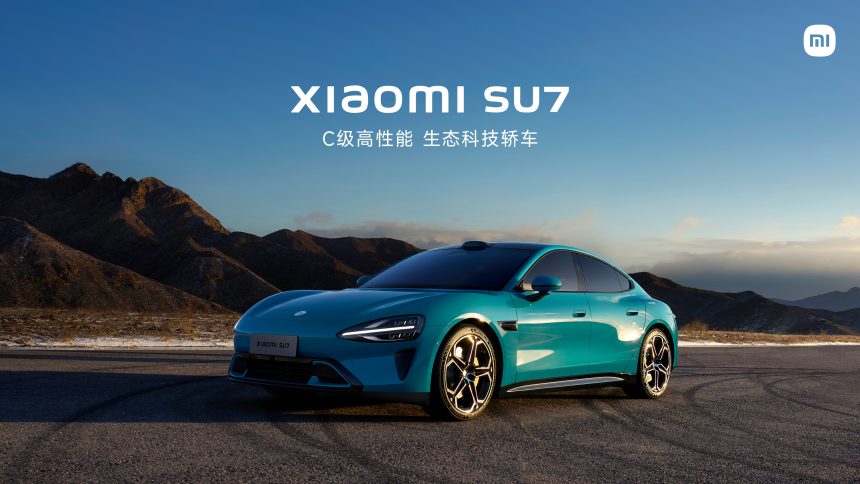Tech giant Xiaomi has officially unveiled its first electric vehicle (EV), the SU7, and wasted no time taking pre-orders.
Xiaomi CEO Lei Jun unveiled two models: the standard SU7 priced at a competitive 215,900 yuan ($29,872), and the feature-packed Max version at 299,900 yuan. Although the Tesla Model 3 in China sits slightly higher than Xiaomi’s standard SU7, however, it’s a good start.
This approach has led competitors like Tesla to slash prices in recent months to combat the rise of local players, including the top-selling EV maker BYD.
The launch wasn’t just about shiny new cars but about customer response. Xiaomi boasts over 50,000 orders secured within 27 minutes of sales going live—impressive. This initial surge highlights the immense interest surrounding Xiaomi’s foray into the electric car market.
Xiaomi’s entry into EV was just right on time. The global EV market is experiencing a slowdown, leading to a price war among established players. This puts Xiaomi against top EV manufacturers like Tesla and BYD.

Beyond price, the SU7 boasts an impressive range. With a minimum of 700km (435 miles) on a single charge, it surpasses the Tesla Model 3’s range by a significant margin. This extended range could be a major selling point for potential buyers.
Xiaomi is banking on its existing customer base by integrating the SU7 with its familiar operating system, allowing seamless connectivity across phones, laptops, and other devices. This strategy aims to attract loyal Xiaomi users looking to extend their brand experience to the electric car world.
READ ALSO: Egoras to Debut EV Charging Station Powered by Blockchain in Nigeria
As the world’s third-largest smartphone seller, after Samsung and Apple, Xiaomi carries significant brand recognition. The SU7 has drawn comparisons to Porsche’s Taycan and Panamera models, hinting at a sleek and potentially sporty design.
Production will be handled by a subsidiary of BAIC Group, a state-owned car manufacturer, leveraging a plant capable of churning out 200,000 vehicles annually. Whether they can translate initial excitement into sustained success remains to be seen.

While this launch marks a new era for Xiaomi in the EV industry, experts like Bill Russo of Automobility emphasize the long road ahead. Russo highlights the key challenge for tech companies venturing into EVs – establishing themselves as a credible brand in this new space. Apple’s recent reported cancellation of its EV project serves as a caution—meaning, things are not always what they seem.
Most people underestimate Xiaomi not fully comprehending what they can do. Their commitment is evident in the $10 billion investment pledged for the EV business over the next decade.
Analysts like Abhishek Murali from Rystad Energy point to China’s established EV ecosystem as a potential advantage for Xiaomi. China’s robust battery supply chain and expanding charging network could provide a strong foundation for their success.
Xiaomi enters a crowded marketplace, but its approval from Chinese authorities highlights its potential as a serious contender. This is especially significant considering the government’s recent efforts to limit new entrants in the market.
While Xiaomi celebrates its launch, established players like BYD are experiencing a slowdown in growth. Similarly, Shanghai-based electric car maker Nio recently lowered delivery forecasts, reflecting cautious consumer spending amidst China’s economic slowdown. All eyes are now on Tesla, with their first-quarter delivery numbers expected next week.
Beyond domestic competition, the global EV market presents its challenges. Trade tensions are simmering, with China recently initiating a dispute settlement against the US regarding alleged EV subsidies.
The European Union is also investigating potential unfair advantages Chinese EV makers enjoy. Despite these hurdles, Xiaomi’s electric car debut is a bold move. With a competitive price, impressive range, and brand recognition, Xiaomi can potentially disrupt the EV market.














